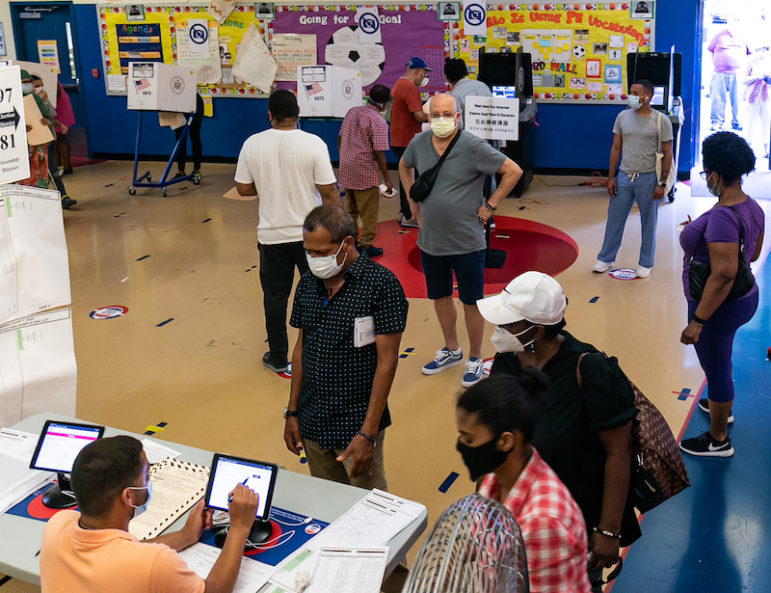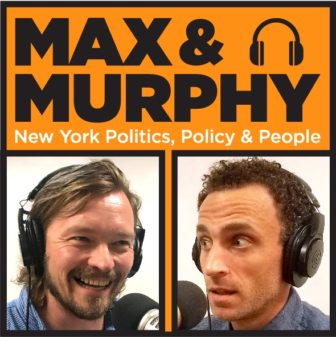‘What we see as we’re still in this historic crisis is voters are looking to vote their values, which is what our party and our line has always been about.’

Adi Talwar
The WFP believes its success in the June primaries, despite having to suddenly shift to virtual campaigning, suggests it has the necessary appeal to meet tough new ballot-access requirements.The results from New York’s June primary hit with a trickle rather than a splash, as election officials spent weeks tallying the huge number of absentee ballots in a number of close races—ending Wednesday with the last open race being declared over. But whether your vantage point was the moment the polls closed on June 23rd or this week’s final certification, it’s clear that progressive insurgents had a good night, and that the Working Families Party was particularly successful.
WFP endorsed candidates Jamaal Bowman and Mondaire James won nominations for Congressional seats. Jabari Brisbort won a State Senate primary. Khaleel Anderson, Jessica Gonzalez-Rojas and Marcela Mitaynes will have the Democratic slots in their Assembly districts. While the WFP wasn’t on the right side of every upset—they backed incumbent Brooklyn Assemblymembers Joe Lentol and Walter Mosely, who lost their primaries—and backed some insurgents, like Samelys Lopez, who did not prevail, it still came out of the June round with an impressive scorecard.
Sochie Nnaemaka, director of the New York WFP, told WBAI’s Max & Murphy Show on Wednesday that the showing was that much more impressive because it occurred despite the challenges in conducting get-out-the-vote efforts during a pandemic.
“As folks know, for progressive races and for grassroots candidates, the bread and butter is door knocking and so talking to voters, talking to voters at every single door and really competing for votes through deep relational conversations,” she said. “Obviously, that was taken out of our playbook this year, and so we pivoted quickly into skilling folks on digital campaigning and phone banking.” That meant conducting trainings, turning over the party’s automated dialing systems to campaigns and working closely with allies, like the nurses union.
A different task faces the party in November. While some are in marginal districts where Republicans will run a viable campaign, many WFP-backed candidates will cruise to a general-election win because they are in true-blue territory. The steeper challenge will be to the party itself. A change in state election law earlier this year means that for the WFP to maintain ballot status it needs to get 2 percent of the votes cast in New York in the president race this year, or 130,000 votes, whichever is greater. They’ll have to clear the same hurdle in the 2022 gubernatorial race. That’s a far higher bar than the old threshold, which only looked at the governor’s race and set the threshold at 50,000 votes.
The bottom line is the WFP will need a lot of people to vote for Joe Biden on their line, if they hope to maintain ballot status beyond 2020. Given the success this year in the Democratic primary, where the WFP had no ballot line and all, a place on the ballot might not be essential to the party, but it does provide leverage.
Nnaemaka is confident it’s a tool the WFP will retain.
“What we see as we’re still in this historic crisis is voters are looking to vote their values, which is what our party and our line has always been about,” she says. “We’re building a campaign and momentum to ensure than in a two-party system, even in a triple blue state, that there is still a vehicle and a way for people to work in concert to get and to vote for the vision they want.”
Hear our conversation below, or listen to the full show, which includes an interview with likely Democratic mayoral candidate Shaun Donovan.
Sochie Nnaemaka on the WFP’s June Wins and November Prospects
Max & Murphy Full Show of August 5, 2020
With reporting by Ben Max










2 thoughts on “Working Families Party Believes Primary Wins Will Help It Maintain Ballot Spot”
I have been wondering if WFP has secured Joe Biden to appear on their ballot line. Have they? I’d feel better about voting for the fool if I knew if was helping WFP retain ballot status. Hopefully by 2022 the ballot access rules will be overturned.
And if they don’t achieve the needed amount of votes then what? Throw in with the Socialists? Dry up and join the Right-To-Life, Liberal or Reform Parties of old?
I was waiting for a DSA v. WFP showdown. The DSA does not have ballot territory to protect every year so it’s not a fair fight. The DSA wants to interfere in the Democratic Party some what like Sein Fein in Northern Ireland. But they have no Armalites or ammonium-nitrate to ease the path. All they have an unfamiliar ideology and deceit.